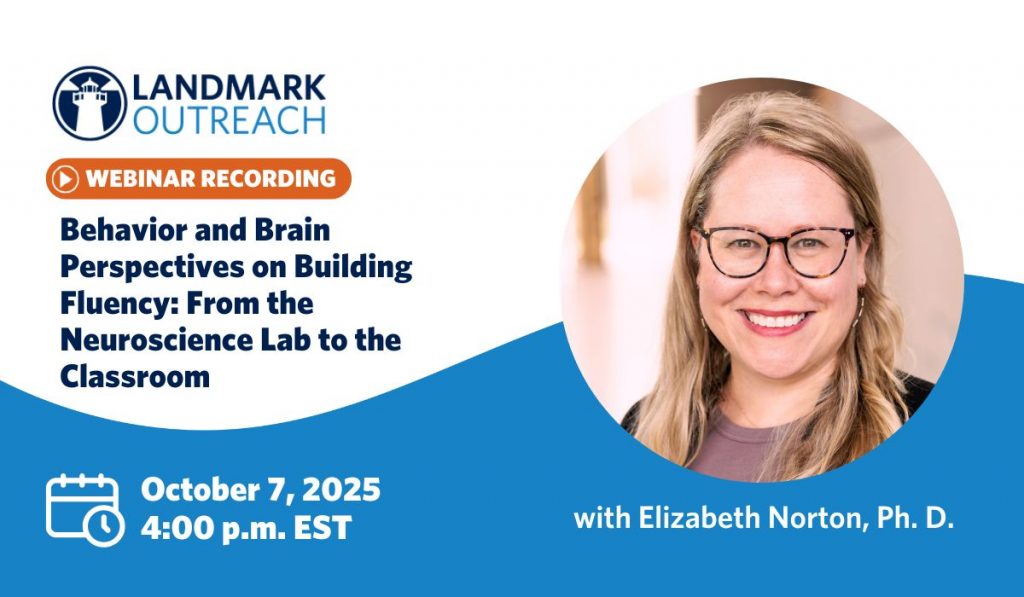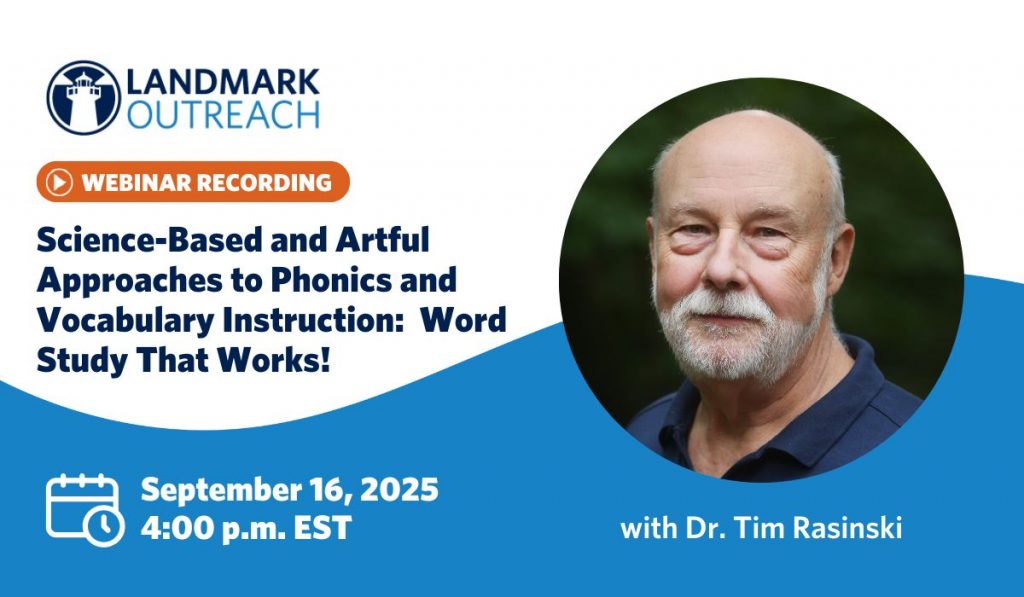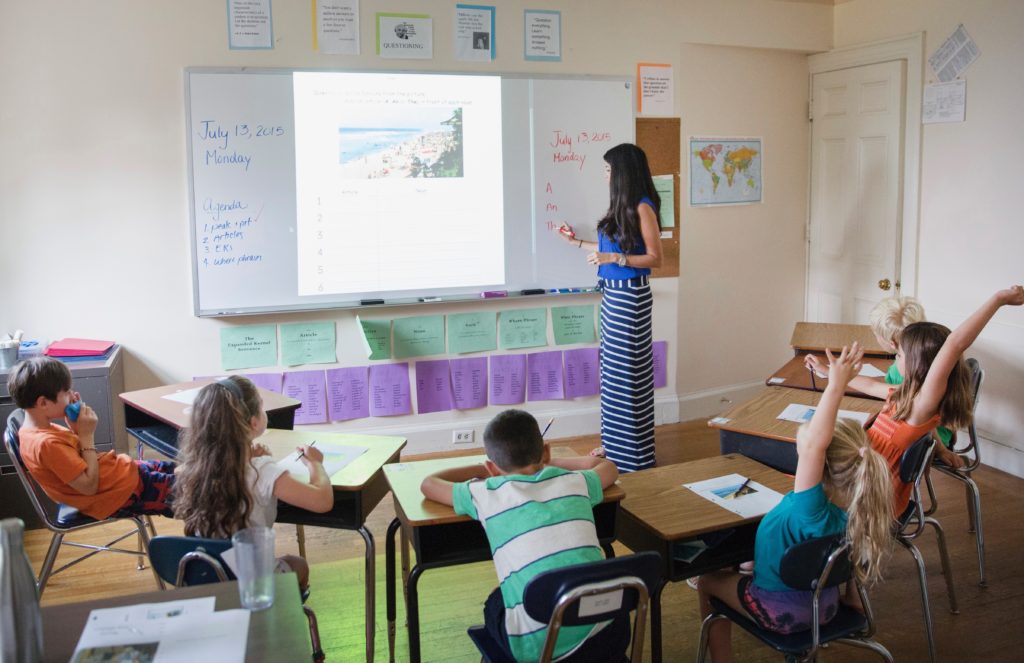Filter resources by:
Select a filter from the drop down menu to apply the filter. Page reloads upon selection

Oct 8, 2025
Must be logged in
Behavior and Brain Perspectives on Building Fluency: From the Neuroscience Lab to the Classroom | Webinar Recording
Join Elizabeth Norton as she shares perspectives on studying reading, especially fluency, from its earliest predictors and building blocks to its outcomes in the high school classroom and beyond.
View Webinar
Sep 29, 2025
Reading Fluency: What is it, and Why is it Hard to Change?
The definition that has shaped my view of reading fluency and much of my subsequent work comes largely from my PhD mentor, Dr. Maryanne Wolf. According to her, fluency (or “fluent comprehension”) is when each of the component parts of text reading (e.g., phonological, motoric, morphological, syntactic, orthographic processes), are not just accurate, but automatic,
Read Blog
Sep 17, 2025
Must be logged in
Science-Based and Artful Approaches to Phonics and Vocabulary Instruction: Word Study that Works! | Webinar Recording
Join Dr. Tim Rasinski to explore effective and engaging methods for helping students learn words and their meanings.
View Webinar
Aug 25, 2025
Let’s Make Word Study (Phonics, Spelling and Vocabulary) More Game-Like!
Have you ever noticed that as you play a game regularly, you tend to get better at the game? We have a special name for it when you become better at something – it’s called learning! Indeed, in an ASCD blog article (1.28.22), leading literacy scholar Nell Duke explores What Wordle Reminds Us About Effective
Read Blog
Aug 8, 2025
Must be logged in
Executive Function: A Guidebook
Executive Function (EF) is a set of mental processes that helps us manage our thoughts, actions, and emotions to achieve goals. According to Newhall (2014), it enables us to plan, start, and finish tasks. It helps us focus, control impulses, monitor and adapt behaviors, and stay on track to get things done. Renowned executive function
View Resource
Jul 8, 2025
What is Dyslexia?
Let’s break this definition down piece by piece. Specific Learning Disability: Specific learning disability (SLD) is a category taken from the federal legislation–Individuals with Disabilities Education Act (IDEA, 2004)–that guides decisions regarding who qualifies for special education services. There are 13 disability categories under IDEA of which SLD is the most common. SLD is defined
Read Strategy
Jun 30, 2025
Language-Based Classroom Environment
Specialized language-based instruction is explicit, systematic, and sequential: Specialized: Instruction is intentional and individualized. Rooted in a deep understanding of neurodevelopmental variation, it is individualized and tailored to a student’s unique strengths, challenges, and learning profile. Explicit: Teachers clearly define concepts, model strategies, state learning goals, and scaffold routines. Students are taught how to learn,
Read Strategy
Jun 26, 2025
Self-Reflection and Executive Function
Reflection in Action To get important insights into their students’ skills, classroom teachers can provide students with simple questionnaires about their work habits and attitudes towards school and other routines. If students complete self-questionnaires at the beginning of the school year, the classroom teacher can be provided with knowledge about their strengths, weaknesses, interests, and
Read Strategy
Jun 16, 2025
Assessing Oral Reading Fluency
How Do We Measure Rate and Accuracy? Reading fluency is frequently assessed through oral reading fluency (ORF) tasks. In such tasks, students are asked to read a passage aloud, usually for one minute. A teacher or evaluator takes notes on errors that students make (e.g., substituting, omitting, or misreading words) and then calculates the student’s
Read Strategy